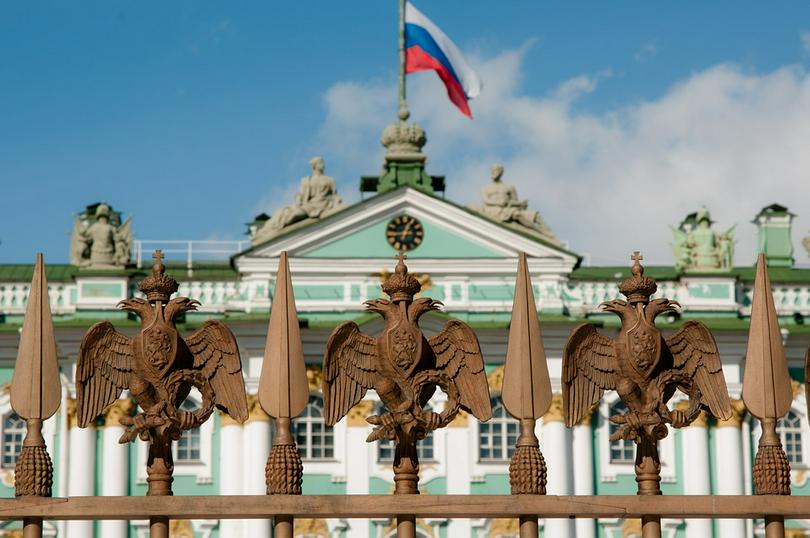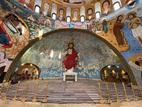M o s c o w - As of 1 April, the Russian Union of Evangelical Christians-Baptists´ (RUECB) flagship „Moscow Theological Seminary", is again up-and-running. For roughly the last 18 months, Protestant institutions of learning have been under considerable state pressure in Russia. Beginning last November, seminaries have been closed, usually for 60-day periods. During this time, they are expected to rectify any violations of building codes as well as medical and educational standards. Such a suspension hit this Moscow seminary on 25 January. It was a particularly draconian one, for the building was sealed and non-educational events, such as religious services held by groups renting a room in the building, needed to be held elsewhere during this two-month period. Its hostel services for short-term guests also needed to be suspended.
Considerable public confusion exists regarding the extent of the restrictive measures taken. In its lengthy report on 25 March, Oslo's „Forum 18" news service appears to claim that only two Moscow serminaries, including the Baptist one, had been closed. On the ground in Moscow in late March, the author was told repeatedly that all Moscow Protestant seminaries had been shut down except for the interconfessional „Moscow Seminary of Evangelical Christians" headed by Alexander Tsutserov. This institution, opened in 2007, has always been supported by „One Mission Society" (OMS) - formerly „Oriental Missionary Society".
Forum 18 reports that the majority of Protestant seminaries never had state accreditation; they were nevertheless closed. A quote: „Religious educational institutions are under no obligation to acquire state accreditation, and many have operated for years without it." These include for ex. Lutheran and Roman Catholic seminaries. The Baptist seminary listed above has re-opened without any state-accredited courses. Apparently seminaries can function without state accreditation, but not without a license. Only basic, non-institutional teaching does not require a license.
One should note that Muslim and Orthodox schools have also been subjected to close scrutiny. Indeed, the clamp-down on theological institutions is part of a larger wave leading eventually to the closing of nearly all non-state schools. Government centralisation is afoot; private universities (for ex. „International University" based in Moscow and Kaliningrad) and even reputable language schools (in Elektrostal near Moscow) have closed their doors for good.
According to barrister Vladimir Ozolin, the actions taken by the state against seminaries have been "systemic and intentional". Ozolin represents the major „Associated Russian Union of Christians of Evangelical-Pentecostal Faith" (ROSKhVE). Its Moscow seminary was also shut down. Observers in Moscow assure that, thanks to multitude layers of legislation, sufficient reason can be found to close down anyone. They see no obvious reason why Tsutserov's institution should be open while others have been forced to suspend operations.
Commentary
The Russian government appears to be pushing seminary training in a direction it had already begun to take on its own accord. Seminary education has always been suspect to the faithful in what US-Americans call „fly-over country". Those with higher-level theological training have customarily ended up in large cities or in the West - or they tend to pitch theologies incomprehensible to those back home. The key trend now involves training those who are already pastors - not those who simply aspire to becoming pastors. Distance education, which was the Soviet model, appears to be the past and future one.
Seminaries are already particularly suspect for nationalists because their levels of foreign financial support are traditionally much higher than the average - nearly 100% in some cases. As a „non-essential" to those in fly-over country, they would not exist without foreign sources. That dependency makes them most susceptible to the „meddling" of foreigners.
New inter-confessional body in Ukraine
Sometimes difficult to prove, but political logic would indicate that the close alliance of Ukrainian Protestants with the Kiev government has serious negative repercussions for their brothers and sisters in next-door Russia. Baptist lay pastor Oleksandr Turchynov was instrumental in the founding of an „All-Ukrainian Council" of churches on 22 January. Its founding members include top Baptist and Pentecostal leaders such as Valery Antoniuk and Mikhail Panochko. Turchynov, the Council's co-ordinator, is currently serving as the country's minister for security and defence. He is regarded as the new organisation's founder and financier. Leading Baptists, including Turchynov, are voting for Poroshenko in the current national elections. Turchynov himself hails originally from the camp of Yulia Timoshenko. He is accused of being most responsible for Kiev's military attack on the pro-Russian Donbass rebels in April 2014.
Of course, Ukraine's Protestants and the politics of Hillary Clinton are not an exact fit - current-day Trump fits better. In his opening address at the Council, Turchynov stressed, that the Council was non-ecumenical, for family values and against any form of gender politics. In an article published on the Ukrainian Baptist Union's website, Turchynov attributes the West's support for homosexuality to the influence of Marxism. In my opinion, Turchynov thereby makes the same mistake currently prominent in the USA: using "liberal" and "leftist" as if they were synonyms. But post-1945 communism in Eastern Europe was leftist - not liberal. Brezhnev, Mao, Stalin and Castro were leftists - not liberals championing the rights of sexual minorities.
Ukraine's newly-recognised, breakaway Orthodox confession - once subservient to Moscow - is no less pro-Kiev than the evangelicals. But Russian Orthodoxy is of course much more capable of defending itself within Russian proper. The Russian Orthodox Church has been wounded by its major losses in Ukraine; it will want to insure itself against any further losses to evangelicals or Catholics on Russian turf.

By William Yoder, Ph.D.April 18th, 2019
related articles
LATEST FROM World











